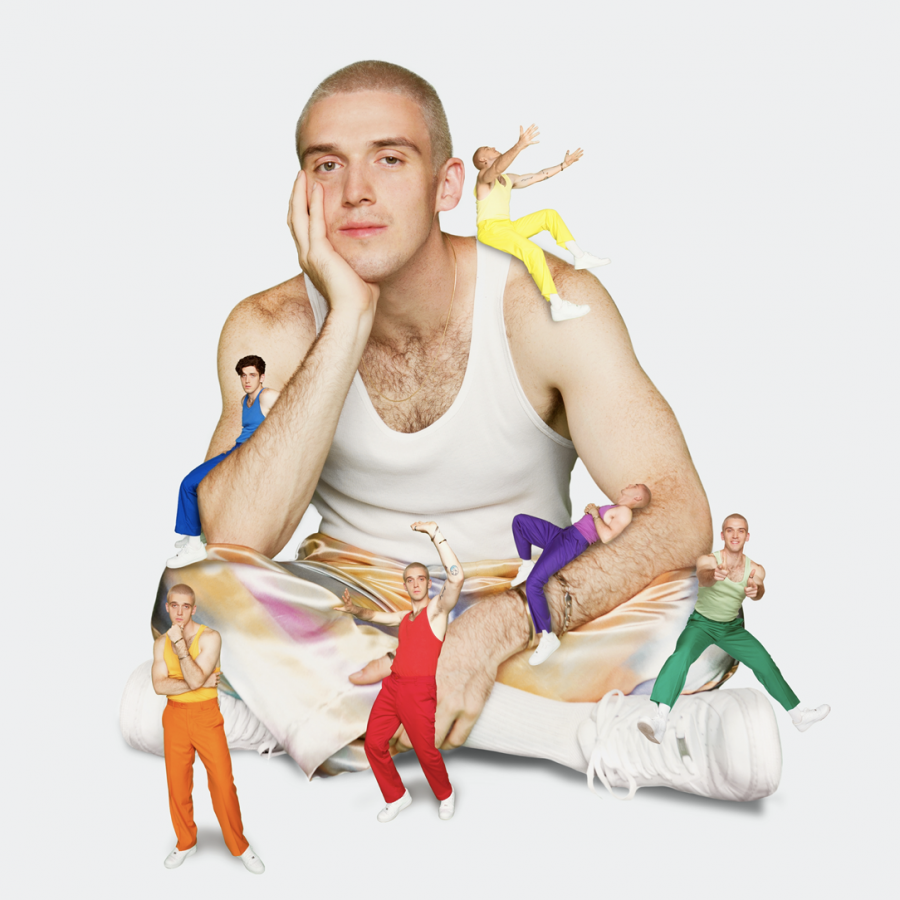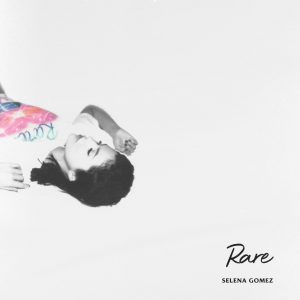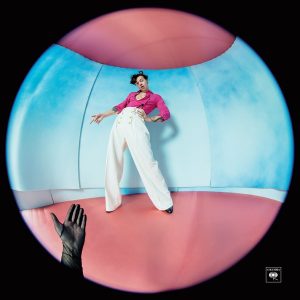“How we’re feeling” about Lauv’s new album
April 22, 2020
Lauv released his debut album “~how i’m feeling~” on March 6, featuring 21 tracks. In a shift from his previous releases, in particular his playlist “I Met You When I Was 18,” Lauv explores a more authentic and mature perspective on his emotions in this first album. Delving into relevant social issues from depression to modern-day relationships, “~how i’m feeling~” marks a maturation in Lauv’s musical style, each track full of lyrics that are both nuanced yet relatable.
Starting with the album cover, Lauv quite literally gives listeners a visual representation of the complex emotions he wants to express. The album cover features five miniature versions of Lauv draped on a larger version of himself, each representing a different emotional state: existential, hopelessly romantic, spicy, goofy and f*ckboy. In an October 2019 interview with Dork, Lauv explained that this album differs from “I Met You When I Was 18,” which is a compilation of songs about a long term relationship he had.
He explains, “my last project was so focused on how I was with somebody else and being with somebody else, and this is way more just like me, like as my own person.”
The first track of the album, “Drugs and the Internet,” kicks off the album with an existential Lauv. Many of the lyrics seem self-deprecating, criticizing his choices to replace important figures in his life with anti-depressants and online gratification: “Traded all my friends for drugs and the Internet.”
Before releasing one of his first tracks, Lauv used Instagram to give his followers insight into the struggles he faced producing the album, saying that “along the way I constantly found myself feeling like I was pushing a rock uphill … And I started to fall out of love with music.” Lauv also makes the stylistic choice to describe himself in both the first-person and third-person: “Look quick, is he a winner yet? / Still hasn’t hit him yet.” Lauv purposefully separates his criticism from his voice in order to highlight his flawed judgment at the time. However, choosing to end the song with “I wonder what it feels like / To be more than I am” brings the listener’s attention back into Lauv’s head, as he juxtaposes self-mockery with self-doubt.
However, Lauv takes a more hopeful tone in “Sad Forever,” which focuses on his determination to overcome mental illness. He sings, “I don’t want to be sad forever … I just want to wake up and realize / Everything’s going to be okay.” He begins to approach his mental state from a more optimistic perspective, singing, “I’m coming through to the other side / I’ll make it through to tomorrow,” parting from the self-deprecating approach of past songs such as “Drugs and the Internet.” Buoyed by an upbeat, lighthearted character, “Sad Forever” demonstrates Lauv’s renewed hope in making music and living his life to the fullest. Lauv also announced that all proceeds from “Sad Forever” would be donated towards mental health causes, showing his dedication to creating tangible impacts to the complex issues represented in his music.
In addition to discussing mental illness and substance abuse, Lauv turns his attention to love. In “Mean It,” Lauv collaborates with LANY to criticize the spontaneity of modern relationships which often leads to heartbreak. In the song, he sings about the pain of being with someone who rushes into the relationship even though he’s not their first choice, singing, “Baby, don’t run me ‘round and ‘round / Don’t kiss me, no, don’t kiss me right now / On your lips, just leave it / If you don’t mean it.” While the track is unmistakably catchy, beneath the upbeat music the listener can relate to Lauv’s frustration.
Several tracks later, however, in “Tattoos Together,” Lauv complicates his perception of these carefree modern relationships, singing about getting tattoos with someone to immortalize their relationship even if they drift apart in the future. He sings, “Let’s get tattoos together, something to remember / If it’s way too soon, f*ck it, whatever / Give me shapes and letters, if it’s not forever / Then at least we’ll have tattoos together.” The lyrics and the carefree, upbeat vibe of the song convey that sometimes, Lauv is actually willing to throw caution to the wind for love. The combination of “Mean It” and “Tattoos Together” cleverly and authentically illuminates the confusion of modern-day relationships.
This idealism is continued with “Canada,” a collaboration with Alessia Cara, and “Sims.” “Canada” is inspired by a study Lauv read that said moving to Canada was the best way to improve one’s quality of life. He and Cara sing about an idealized relationship in which they leave the busy life of the city behind to be together, saying, “What if we move to Canada / And buy some things we don’t need? … And when they talk about those / People who up and leave / That could be us.” However, in “Sims,” Lauv offers a more realistic assessment of relationships. “Sims” centers on falling for someone under the wrong circumstances, saying, “I wish that you and I lived in The Sims / We could build a house and plant some flowers and have kids / But we’re both at some trashy Halloween party downtown / And I’ll probably never see you again.” He imagines various scenarios in which he falls in love with someone, only to bring it back to the reality that modern dating often doesn’t spark true connection.
Finally, in “Julia,” the penultimate track on the album, Lauv considers the interconnectedness of his mental health and romantic relationships. “Julia” centers on Lauv’s former relationship with singer Julia Michaels, which ended in early 2019, and essentially serves as an apology and acknowledgement of the harm he and his mental state may have have caused her. Lauv sings, “Oh, Julia / I’m sorry what I do to ya / I push and pull and mess with your head … Oh, Julia / I wish I never lied to ya / I never meant to hurt you like that.” The sincerity shines in his choice of lyrics. Rather than pleading for a second chance, Lauv admits that he thinks he shouldn’t have been in the relationship in the first place: “And if I could go back, I’d leave you alone.” Backed by a stripped-down piano, Lauv’s voice palpably emanates emotion and regret.
The album ends with “Modern Loneliness,” one of Lauv’s most reflective and relevant songs yet. In it, he considers how he feels emotionally isolated from others in his life despite being physically with them, singing “Modern loneliness / We’re never alone, but always depressed.” While the opening piano chords ring with resolution and finale, the lyrics synthesize various topics covered throughout the album into a bigger dilemma: simultaneous social immersion and growing solitude. On social media, Lauv has said that “Modern Loneliness” is the most significant song he’s ever written, and this rings true in the poignancy of his lyrics and anthemic style of the song, putting into words the isolation he and many young people feel today.
Overall, Lauv offers a refreshingly realistic assessment of modern relationships, whether it be with a significant other, friends or oneself. With “~how i’m feeling~”, Lauv establishes himself as a full-fledged artist whose music is sure to resonate with its listener.







Anonymous • Jan 26, 2022 at 4:30 pm
insightful